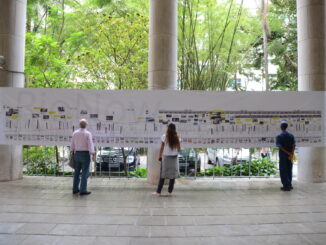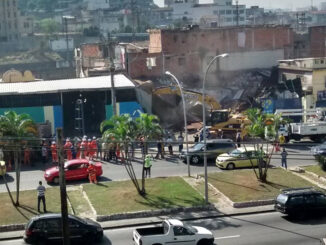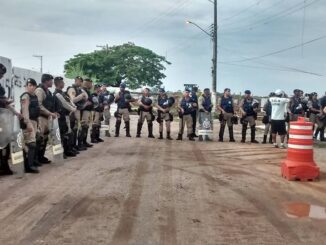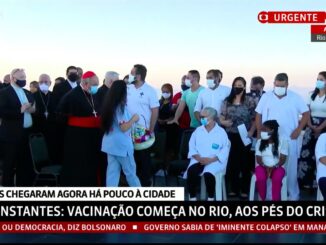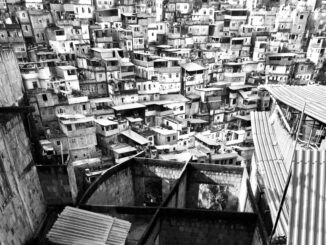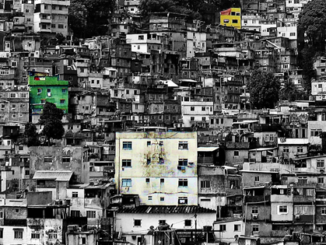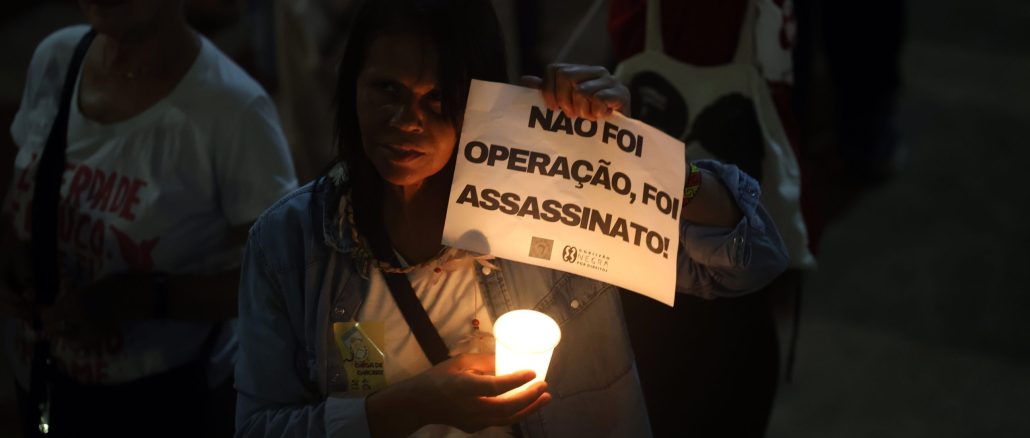
#UPPWatch
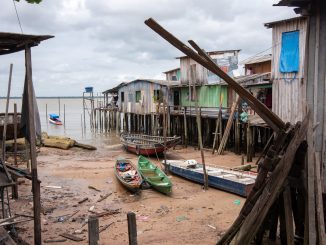
Clique aqui para Português This article is part of a series created in partnership with the Behner Stiefel Center for Brazilian Studies at San Diego State University, to produce articles for the Digital Brazil Project on environmental justice in the favelas […]
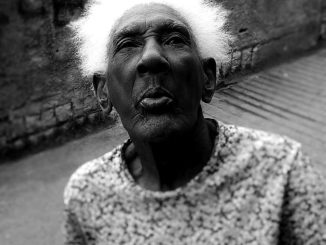
Clique aqui para Português This article marks Brazilian Black Awareness Month 2025 and is part of RioOnWatch‘s series on Memories of Favela Power, which documents and celebrates the history of Rio de Janeiro’s favelas through […]
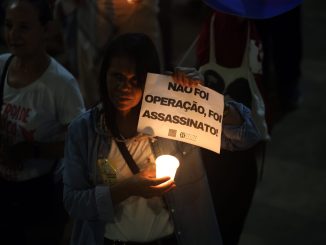
Clique aqui para Português In the early morning of October 28, 2025, 2,500 Civil Police and Military Police officers entered the Penha and Alemão favela complexes for a mega-operation that became the deadliest in the […]
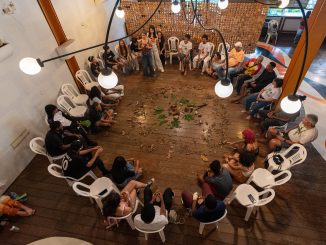
Clique aqui para Português This is the second of two articles complementing official coverage of the 2nd Sustainable Favela Festival. Click here for part one. During the countdown to COP30 in Belém, the climate conference […]
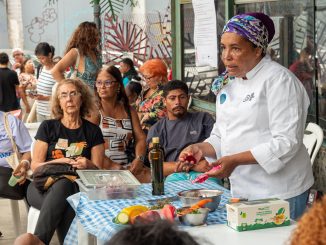
Clique aqui para Português This is the first of two articles complementing official coverage of the 2nd Sustainable Favela Festival. Click here for part two. Organized by the Sustainable Favela Network (SFN)*, the 2nd Sustainable […]
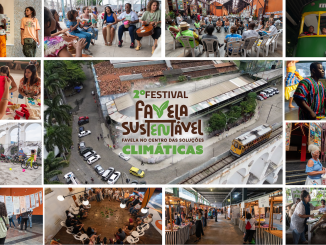
Clique aqui para Português Bringing together 1,300 people on Saturday, October 18, at Fundição Progresso in Lapa, downtown Rio de Janeiro, the 2nd Sustainable Favela Festival featured 140 activities in a rich exchange of […]
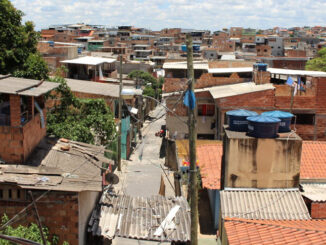
Clique aqui para Português For the original press release in Portuguese, published by Brazil’s census bureau, the Brazilian Institute of Geography and Statistics (IBGE), click here. The Brazilian Institute of Geography and Statistics (IBGE) is […]
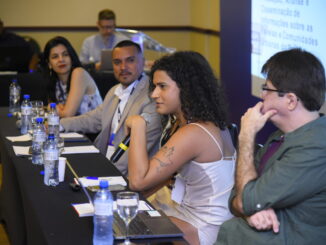
Clique aqui para Português This is the final article in a series of three about how Brazil’s census bureau, IBGE, held an unprecedented week-long workshop to debate how to change the term “subnormal agglomeration” used […]
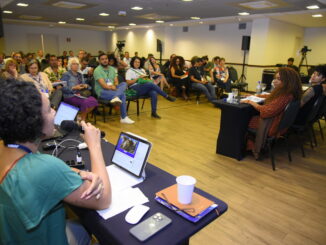
Clique aqui para Português This is the second article in a series of three about how Brazil’s census bureau, IBGE, held an unprecedented week-long workshop to debate how to change the term “subnormal agglomeration” used […]
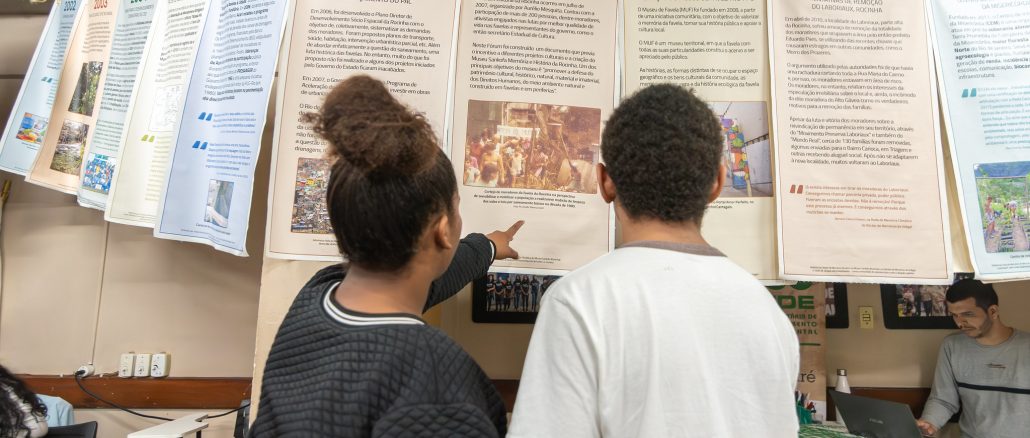
What is a Favela?
Favela as a Sustainable Model
What is a Favela Community Land Trust?
Rio de Janeiro Street Vendors’ Battle for Rights: My Informal Work Matters
Just One More Step on My Journey: Youth Talk About the Favela During the Pandemic
Quilombo dos Palmares: Living Resistance
Favela on Outskirts of Rio Gets Solar! Grassroots Women’s Group & SFN Launch Photovoltaics
Favela Climate Memory Circles 2023—Voices from Maré, Rocinha, Antares, PPG and Vidigal
Get to Know the Course: ‘Researching and Monitoring Water and Energy Justice in the Favelas’
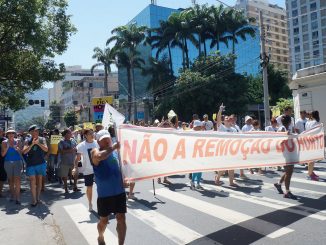
Clique aqui para Português October 13, 2025 will go down in the history of Horto, in Rio de Janeiro’s South Zone, as the day when the community signed a historic agreement that ends the threat […]
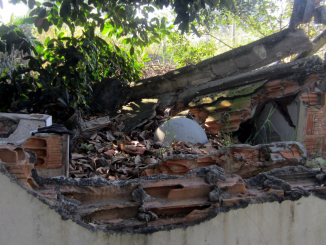
Clique aqui para Português The possibility of forcibly evicting the Maracajás, Rádio Sonda, and Estrada do Galeão No. 92 favelas, located near the Tom Jobim (Galeão) International Airport where tourists visiting Rio land each day, […]
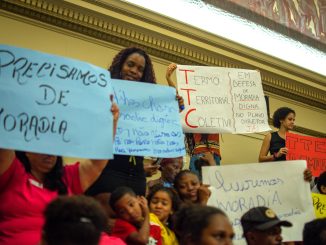
Clique aqui para Português The Community Land Trust is a model of collective land tenure that combines individual freedom with collective strength by separating land and home ownership. Originating in the United States in the […]
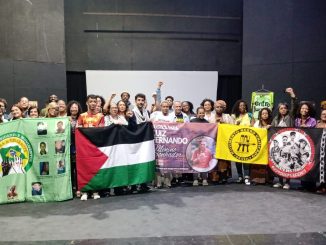
Clique aqui para Português On Saturday, July 5, the tenth edition of Black July took place at the Maré Museum, in the group of favelas that make up Complexo da Maré, in Rio de Janeiro’s […]
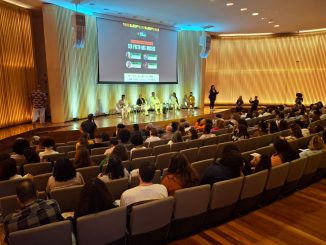
Clique aqui para Português On Friday, May 30, Rio de Janeiro’s Museum of Tomorrow, located in the city’s Port Region, hosted the 1st Seminar of the Anti-Racist Museums Program. Co-organized by the New Blacks Institute […]

Clique aqui para Português Launched in 2016, the Samba Abstrato (Abstract Samba) Facebook page was created to document the appropriation and whitening of Brazilian carnival samba schools, as well as to confront the invasion of […]

Clique aqui para Português In the early morning of October 28, 2025, 2,500 Civil Police and Military Police officers entered the Penha and Alemão favela complexes for a mega-operation that became the deadliest in the […]
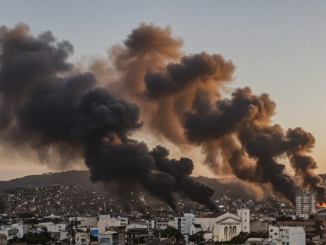
Clique aqui para Português This article is part of RioOnWatch’s ongoing #VoicesFromSocialMedia series, which compiles perspectives posted on social media by favela residents and community organizers about events and societal themes that arise. October 28, 2025, will […]
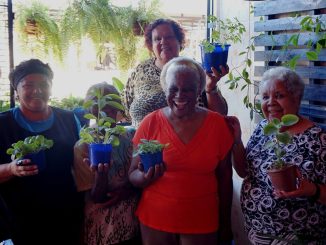
Clique aqui para Português Established in 1988, initially to offer religious support to a group of 20 elderly residents of City of God, in Rio de Janeiro’s West Zone, Casa de Santa Ana (Santa Ana’s […]
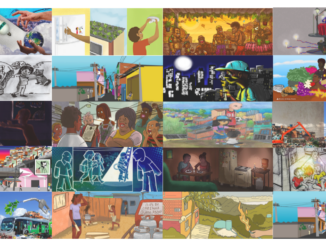
Watch the video that summarizes the Energy Justice and Efficiency Series with English subtitles here: Clique aqui para Português This article and the video above offer a summary and conclusion to the series ‘Energy […]
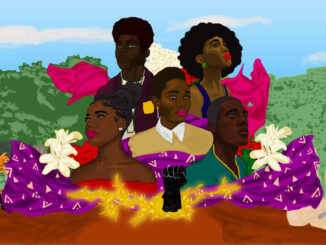
Clique aqui para Português This article is part of a series on energy justice and efficiency in Rio’s favelas. It is also the latest contribution to our year-long reporting project, “Rooting Anti-Racism in the Favelas: Deconstructing […]
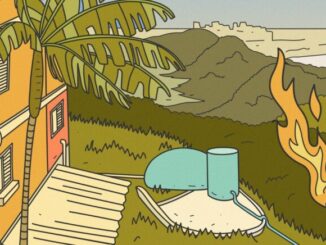
Clique aqui para Português This English subtitled documentary is the latest contribution to our series on energy justice and efficiency in Rio’s favelas. It is also part of a series created in partnership with […]

Clique aqui para Português This article is part of a series created in partnership with the Behner Stiefel Center for Brazilian Studies at San Diego State University, to produce articles for the Digital Brazil Project on environmental justice in the favelas […]

Clique aqui para Português This is the second of two articles complementing official coverage of the 2nd Sustainable Favela Festival. Click here for part one. During the countdown to COP30 in Belém, the climate conference […]

Clique aqui para Português This is the first of two articles complementing official coverage of the 2nd Sustainable Favela Festival. Click here for part two. Organized by the Sustainable Favela Network (SFN)*, the 2nd Sustainable […]
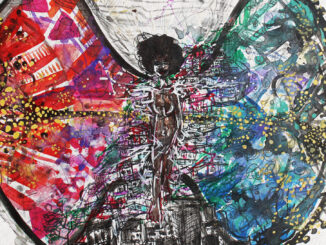
Clique aqui para Português This article is the latest contribution to our award-winning reporting project, Rooting Anti-Racism in the Favelas: Deconstructing Social Narratives About Racism in Rio de Janeiro. We hear about “right” and “left” all the time. […]
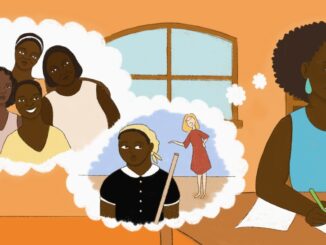
Clique aqui para Português This article is the latest contribution to our award-winning reporting project, Rooting Anti-Racism in the Favelas: Deconstructing Social Narratives About Racism in Rio de Janeiro. This story, told by writer and former domestic worker […]
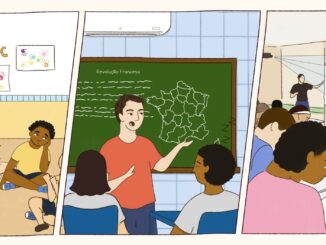
Clique aqui para Português This is our latest article in a series created in partnership with the Behner Stiefel Center for Brazilian Studies at San Diego State University, to produce articles for the Digital Brazil Project on climate impacts and affirmative action in […]
